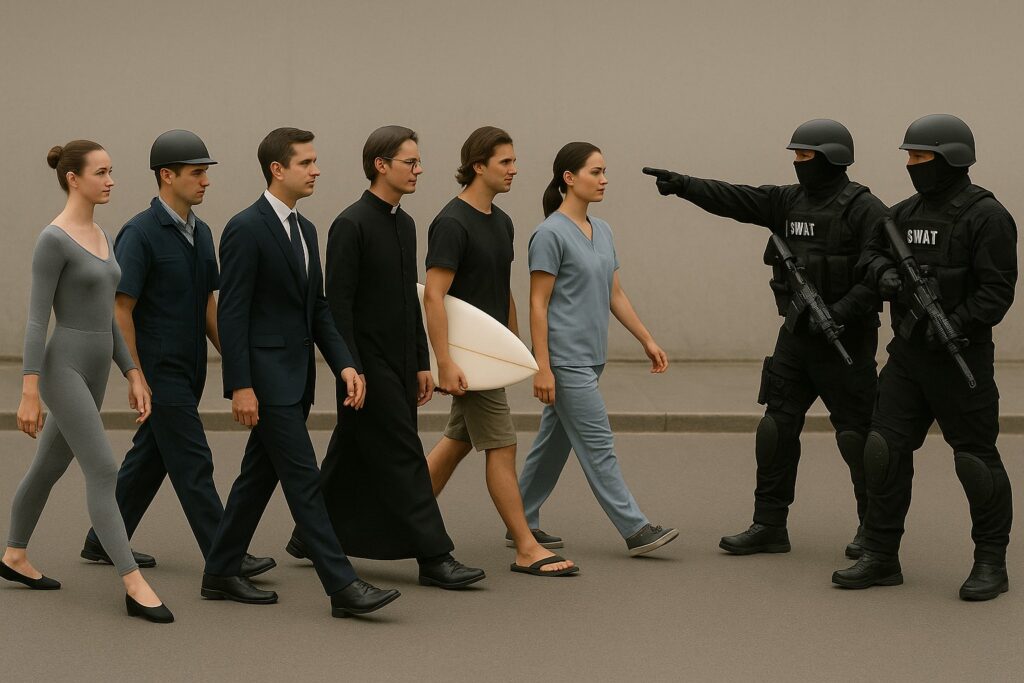The Free Market Is Not a Tool for Politicos

Wall Street Journal editor Matthew Hennessey rightly criticied Vice-President JD Vance’s statement that the market is just “a tool, but it is not the purpose of American politics.” (“JD Vance Is Wrong: The Market Isn’t a ‘Tool,’” Wall Street Journal, May 26, 2025). Hennessey argues that markets are simply the way humans naturally trade and exchange without coercion:
I give you this, you give me that. Simple exchange is what makes a market. Not faith, not mantras, not brick and mortar. Wherever people come together to trade is a market. …
Markets harness supply and demand to coordinate economic transactions between people and firms. They facilitate the free exchange of goods and services. They are mechanisms for shared prosperity based on freedom from coercion.
As true as that is, it misses, at least explicitly, an economically inspired philosophical argument that provides an important justification of the market. When he trades in the abstract locus that the market is, an individual aims at satisfying his preferences, whatever they are. He pursues his own ends, goals, or purpose, even when he claims he doesn’t. An individual’s possible purpose of charity, solidarity, or communality is what this individual subjectively considers such. He doesn’t pursue the “purpose of American politics,” except perhaps if he has been infected by naive democratism or becomes, to quote Adam Smith, one of these “insidious and crafty animal[s], vulgarly called a statesman or politician, whose councils are directed by the momentary fluctuations of affairs” (The Wealth of Nations, Book IV, Chapter 2).
Contemporary classical libertarianism, even in its tamer forms, is more radical than Mr. Hennessey’s defense may suggest. Let me give two prime examples.
Friedrich Hayek, a 1973 Nobel economics laureate, argued that in a free society, each individual is free to pursue his own ends and the state (“government”) does not impose collective ends, which would coercively impinge on individual ends. In the autoregulated order of a free society, there exists no collective purpose. Except for levying necessary taxes, the state can, in normal times, impose only general and abstract rules that forbid the use of certain means that would defeat the benefits that individuals derive from a free society. The state, for example, may ban murder and theft, in conformity with the rule of law, but it may not force an individual in a specific occupation (at least in peacetime, Hayek would say, opening a Pandora box). The “public good” can only reside in rules that facilitate the pursuit of individual ends by all individuals.
(These ideas are notably defended in Hayek’s Law, Legislation, and Liberty, whose three volumes I have reviewed on Econlib: Rules and Order, The Mirage of Social Justice, and The Political Order of a Free People.)
But is it possible to establish or maintain a free society without imposing this very goal enterprise as a collective purpose to be forced upon any individual? The intellectual enterprise of James Buchanan, laureate of the 1986 Nobel Prize in economics, was to answer the question. He endeavored to find a rational justification beyond Hayek’s recourse to the traditional rules that evolved in Western societies. The subtlety of his (and his co-authors’) social-contractarian solution cannot be overstated. A rational individual, he argued, does not want to be regimented at the service of a collective purpose that could turn against him and exploit him. He can only accept a set of rules that would be chosen unanimously by all individuals, thus giving him a veto right. The state is the organization charged with enforcing the set of rules that benefits each and every individual. The state is constitutionally constrained to remain within these strict limits, so as not to become a tool for the exploitation of some individuals.
(The three seminal books developing these ideas are: James Buchanan and Gordon Tullock, The Calculus of Consent; Geoffrey Brennan and James Buchanan, The Reason of Rules; and James Buchanan, The Limits of Liberty—more or less in the order of the most technical to the most accessible. The links are to my reviews.)
The radicalism of classical liberalism is a far cry from the economic illiteracy of the insidious and crafty animals who run governments, on the right or on the left, and their supporting mobs.
******************************

Our collective goal is the other way
econlib





